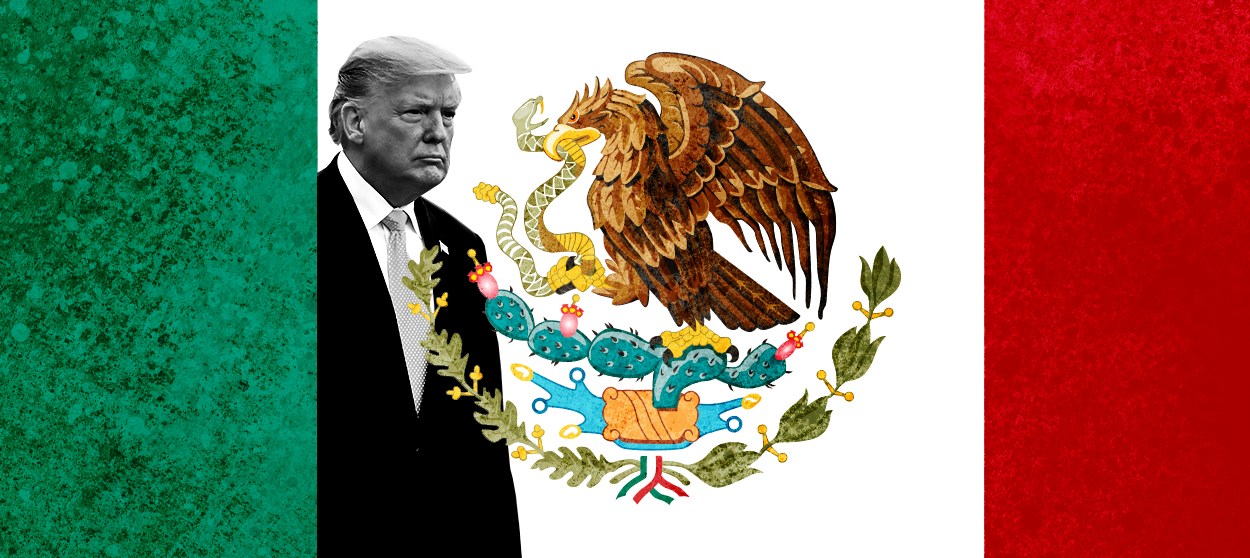Why Trump's new Mexico tariffs won't work
They will probably do far more harm than good


A free daily email with the biggest news stories of the day – and the best features from TheWeek.com
You are now subscribed
Your newsletter sign-up was successful
President Trump has unveiled another anti-immigration policy that seems likely to be just as ineffective as all his previous anti-immigration policies. Trump announced on Twitter Thursday night that he will impose new 5 percent tariffs on all goods imported from Mexico — and then keep raising those tariffs until that country somehow squelches the flow of undocumented immigrants to the United States.
It's another dramatic act by a president who loves drama — and it will produce plenty of criticism from people who already hate the president's trade and immigration policies. But perhaps the most important point is that this move probably won't work. Here are three reasons new tariffs are unlikely to stop — or even slow — northward migration, or accomplish much except to raise the level of misery in both Mexico and the United States.
1. Tariffs will increase the pain abroad. Trump's new policy seems likely to exacerbate the problems that are producing migration in the first place. There are many reasons people around the world flee their countries and head to the United States, but economics is a big one: It's easier to make money here than in their home countries.
The Week
Escape your echo chamber. Get the facts behind the news, plus analysis from multiple perspectives.

Sign up for The Week's Free Newsletters
From our morning news briefing to a weekly Good News Newsletter, get the best of The Week delivered directly to your inbox.
From our morning news briefing to a weekly Good News Newsletter, get the best of The Week delivered directly to your inbox.
Under those circumstances, Trump's tariffs make zero sense. The president's idea is that the policy will work by creating pain in the Mexican economy, forcing that country's officials to act more aggressively to end migration into the U.S. That pain will take the form of reduced profits and — it seems likely — smaller workforces at Mexican companies.
What will Mexican workers do when they lose their jobs? Probably the same thing as their compatriots from across Latin America: head north. Trump's new plan might actually increase the number of migrants seeking work in the United States.
2. Tariffs will increase the pain at home. Economists never tire of pointing out — and the president just as steadfastly seems determined to misunderstand — that tariffs on imports to the United States aren't really paid by those companies or their home countries. Those higher costs are passed on to the American consumers who buy those products. The pain may be unavoidable: Mexico is, after all, one of America's largest trading partners.
This means Americans are about to pay more for their groceries in order to help the president achieve his goal of keeping immigrants out of the country.
A free daily email with the biggest news stories of the day – and the best features from TheWeek.com
It's also likely that Mexico could retaliate with tariffs of its own. The ensuing escalation could produce even more economic pain in the United States. American farmers have already been badly hurt by the first year of the president's trade wars; the president has tried to soften the blow with subsidies to make up for lost business.
So even if the tariffs somehow do manage to reduce immigration, it probably won't be worth the cost to the economy. One good sign: The president's Republican allies in Congress are signalling that they're losing their patience with this approach.
3. Complex problems don't have simple solutions. It's clear that Trump is looking for a silver bullet to end the challenges of migration, but the issue is far too complex to be solved so easily or one-dimensionally. Violence, poverty, and persecution are all factors — and climate change will increasingly be a cause, as well.
To create an effective policy that would reduce migration to the United States, Trump would have to fundamentally change his entire approach to leadership. He would have to care about the hard work of addressing root causes instead of looking for easy one-off solutions that produce more headlines than results. He would have to consider policies that include both carrots and sticks. He would have to be creative.
Trump's apparent approach, instead, is simply to inflict pain and hope it somehow makes the problem go away.
Where immigration is concerned, that approach has been a failure on the president's own terms. The Muslim travel ban was implemented in haphazard fashion. Family separation remains a moral disaster. The border wall is an offense against the Constitution. Still, immigrants keep coming.
There is no reason to believe the president's new policy will be more effective than his previous efforts. But it will cause pain. Trump may not be very good at solving problems, but he's excellent at increasing the amount of unhappiness in the world. That is all his new tariff threat is likely to accomplish.
Joel Mathis is a writer with 30 years of newspaper and online journalism experience. His work also regularly appears in National Geographic and The Kansas City Star. His awards include best online commentary at the Online News Association and (twice) at the City and Regional Magazine Association.
